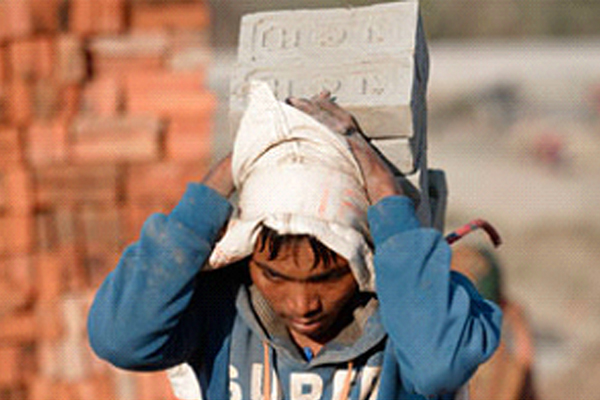|
Organizations Join Forces To Tackle Invisibility Of South Asia’s Brick Kilns
A new report, launched at a high level regional policy event in Nepal, 26-27 January 2017, for the first time highlights the challenges of South Asia’s brick making industry by looking at human labour, working animal welfare, and the environment together. Until now this industry has been largely invisible to policy makers, and the few organizations that have been working to address the issues have primarily done so in isolation.
Bucking this trend, Brooke – Action for Working Horses and Donkeys , The Donkey Sanctuary , and the International Labour Organization have come together to raise the visibility of the brick kilns in the region, and to start tackling the harmful and often illegal practices that affect millions of people and the working conditions of hundreds of thousands of animals every day.
Brick by Brick: Unveiling the full picture of South Asia’s brick kiln industry and building the blocks for change , calls for greater attention and cross-sectoral action on the brick making sector. The report was officially launched at the event, organized by The South Asia Initiative to End Violence Against Children (SAIEVAC) and hosted by the Government of Nepal.
The traditional brick making industry is the backbone of urban development throughout South Asia. It employs between 4.4 and 5.2 million people and over 500,000 working animals but the work is extremely hazardous, and generates highly pollutant emissions. Traditional brick kilns also impact on the health of people, animals and the environment.
Up to 68 per cent of brick kiln workers in South Asia are estimated to be trapped in bonded or forced labour, and it is not uncommon to see children as young as five or six involved in the work, some of whom are sent to the kilns unaccompanied by their families. Women are also heavily involved in brick making, exposing them to severe health risks in particular when pregnant. Workers’ harsh working conditions and illegal practices in the kilns are made worse by the lack of knowledge about labourers’ rights, extreme poverty and a weak policy and legal environment.
Donkeys, mules and horses transport bricks within the kilns and to locations for use in the construction industry, and provide their owners and handlers with an income. Despite being a key link in the brick making value chain, they are mostly invisible in existing initiatives and policy. In the brick kilns animals don’t have access to nutritious food or clean water and suffer wounds from overloading, overworking, beating, inadequate harnessing and general poor care.
“We are putting emphasis on how complex South Asia’s brick kiln industry is, and examining the crucial links between human, animal and the environment sectors. We hope the report will encourage collaboration between people who have the power to act, and start off key conversations that can lead to changing the face of the brick kiln industry,” said Delphine Valette, Head of Advocacy & Public Affairs for Brooke, and co-author of the report.
“It is an incredibly valuable and important breakthrough to be able to directly link the welfare of working animals, including donkeys, with humanitarian and environmental causes,” said Mike Baker, CEO at The Donkey Sanctuary.
“The evidence and experience gained from this collaborative report will help to influence the future of the brick kiln industry and make a positive and sustainable difference to those who are currently working every day in such difficult conditions. The Brick By Brick report will be a key tool in our work to raise the profile of these issues on an international level,” he added.
According to Richard Howard, ILO Nepal Director, “the report highlights the numerous challenges of ensuring decent work for all workers in the brick kiln industry, particularly in respect to forced labour and child labour. Despite these challenges, there are opportunities to improve routine monitoring and inspection of the industry and support workers to organize and negotiate for better working conditions and the elimination of child and forced labour. The SAIEVAC meeting is an important step in this direction.”
The high level policy event, organized by The South Asia Initiative to End Violence Against Children (SAIEVAC) and hosted by the government of Nepal, took place in Pokhara and brought together governments, trade unions, representatives from international non-government organizations (INGOs) and the private sector, to discuss the issues and secure commitments for action from national, regional and global decision makers.
It concluded with a statement of intent from SAIEVAC government representatives and ministries from livestock and environment, on the actions they will take to make the brick industry a priority.
|



